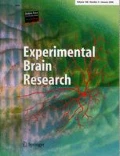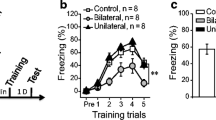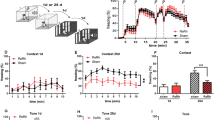Abstract.
Recent studies have questioned the importance of the entorhinal cortex (ERC) for normal hippocampal function. For example, fibre-sparing ERC lesions have been found to have no effect on spatial learning in the watermaze. There is also doubt as to the importance of the ERC for contextual fear conditioning, with previous studies having yielded conflicting results. In an attempt to resolve this issue, the present study compared aspiration and cytotoxic ERC lesioned rats, along with fimbria-fornix (FFX) lesioned animals and sham operated controls, on an unsignalled contextual fear conditioning paradigm. The results of the present study show that whereas lesions of the FFX disrupted contextual freezing, neither aspiration nor cytotoxic ERC lesions had any effect on this behaviour. Aspiration ERC lesioned rats, however, like FFX lesioned animals, did display hyperactivity prior to the delivery of footshock. These results suggest that whereas projections between the hippocampus and subcortical structures are important for normal levels of contextual freezing, projections from the entorhinal cortex are not essential.
Similar content being viewed by others
Author information
Authors and Affiliations
Additional information
Electronic Publication
Rights and permissions
About this article
Cite this article
Bannerman, .D., Yee, .B., Lemaire, .M. et al. Contextual fear conditioning is disrupted by lesions of the subcortical, but not entorhinal, connections to the hippocampus. Exp Brain Res 141, 304–311 (2001). https://doi.org/10.1007/s002210100869
Received:
Accepted:
Issue Date:
DOI: https://doi.org/10.1007/s002210100869




